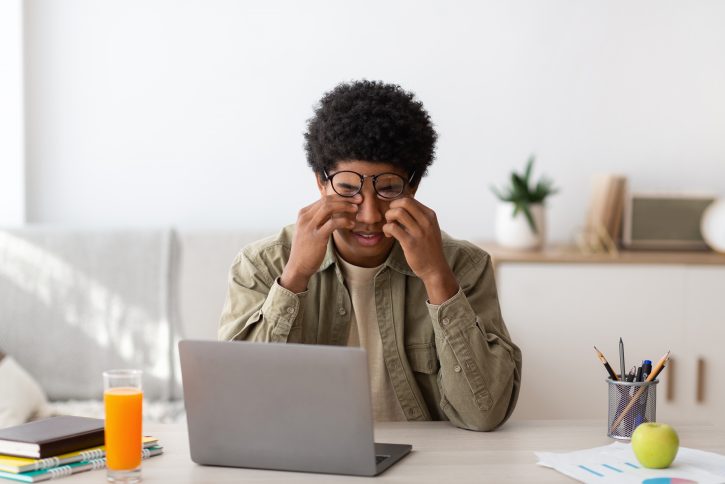
Article originally published February 15, 2021.
One year into the COVID-19 pandemic and it’s no wonder people are tired. Tired of masks. Tired of avoiding crowds. Tired of missing friends and family. Tired of worrying. Tired of cleaning. Tired of exercising caution day-in and day-out. Some of us are just plain tired – and it’s completely normal.
What is COVID Fatigue?
COVID fatigue, or caution fatigue, is different than the physical symptoms associated with the virus. Instead, it’s an emotional state, and it can occur whether you’ve been infected with coronavirus or not. If you have felt mentally drained, exhausted or overwhelmed as a result of the pandemic, you have likely experienced COVID fatigue.
Why is COVID Fatigue a Problem?
COVID fatigue is not only an issue for the individual experiencing it, but it can be a problem for the community as well.
COVID Fatigue and Public Health
When the pandemic started, staying home, avoiding gatherings, taking extra precautions and limiting social interactions seemed like a simple ask – but as time has dragged on (and on, and on, and on), many have lost their motivation to follow public health guidelines.
When someone decides they’re “tired of caring” and chooses to live their life as if coronavirus doesn’t exist, their risk of infection increases, and so does the risk of transmission to those they come into contact with.
When you have hundreds, thousands – or even hundreds of thousands – of people living this way, we begin to see spikes in the number of cases and other grim statistics.
COVID Fatigue as an Individual
On a personal level, COVID fatigue can be a serious challenge. If we aren’t careful, it can cause us to let our guard down, which can be harmful to our physical health. If we aren’t mindful, the condition can take a toll on our mental health.
Unchecked COVID fatigue can lead to an increase in anxiety, depression and stress. It can make us feel helpless, hopeless and irritable – it can even make us feel angry or resentful as we see others ditching the masks and having fun out on the town.
From a mental health standpoint alone, it’s easy to see why managing COVID fatigue is important.
Managing COVID Fatigue
Tips for managing COVID fatigue may sound familiar to those recommended for protecting your mental health – and that’s because the two are closely related. When it comes to managing feelings of burnout, try the following:
Remember the Basics
- Practice good sleep hygiene, including keeping a normal sleep schedule.
- Stay hydrated: drink plenty of water and skip the alcohol.
- Eat healthy, nutritious foods: cooking new recipes can also help you feel creative and productive.
- Move your body: go for a walk, do a workout or dance around the living room.
Engage in Self-Care
- Journal or talk to a friend to help process and share emotions.
- Express gratitude and appreciation whenever possible: spreading joy is good for you as well as others.
- Meditate and practice mindfulness: breathing exercises and yoga are great ways to remain “in the moment.”
- Take time for yourself: find whatever it is that helps you relax and refill and make it a priority in your day or week.
Stay Socially Connected
- Video chat with family and friends regularly.
- Join online communities and connect with people who share your interests.
Manage Your Surroundings
There is such a thing as too much information, which can lead to feeling overwhelmed or desensitized.
- Manage your social media platforms: be aware of inaccurate information and remember that it’s okay to unfollow accounts that exacerbate your anxiety or COVID fatigue.
- Surround yourself with like-minded people. If your friends have thrown caution to the wind, it can be easy to get swept away in the joy of the moment: everything feels normal, but the risk of COVID-19 still exists.
Put risk into perspective by thinking of how the action may impact the health of you or a loved one.
Remember Your “Why”
We are all ready for life to go back to normal. We all miss the days before COVID-19. But when you begin to feel COVID fatigue pushing caution out the door, remember why you’ve been careful for so long:
- To protect yourself
- To protect the medically vulnerable
- To protect the elderly
- To protect your loved ones
- To protect healthcare workers
- To save lives
These reminders can also serve as a good grounding technique when you feel resentment toward those refusing to follow guidelines. You can’t control others, but you have 100% control over your own actions. You are choosing to protect others, and you’re making a difference.
Ask for Help
Mental health is health. If you were experiencing constant tooth pain, you would almost certainly see a dentist. Likewise, if you are struggling with persistent mental health concerns, you may benefit from speaking with a professional.
Counselors, therapists, psychologists and psychiatrists are excellent mental health resources. Talk with your healthcare provider about referral, or learn more about FHP Psychiatry and Health Psychology here.
Additional Resources:
National Alliance on Mental Health
Ohio Department of Health’s Coping with COVID-19 Anxiety
Centers for Disease Control and Prevention’s Stress and Coping
Care for Your Coronavirus Anxiety
SAMHSA Resources and Information
Disaster Distress Helpline: Call 1-800-985-5990 or text TalkWithUs to 66746
National Suicide Prevention Lifeline: 1-800-273-TALK or web chat at https://suicidepreventionlifeline.org/chat/
Crisis Text Line: Text 4HOPE to 741741